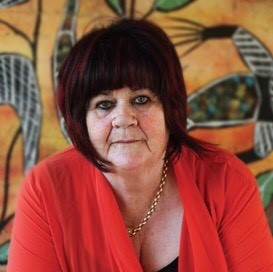“Is this really the sort of society you are happy to be part of? A society where a child’s access to life-defining health care is dependent on their ability to pay for it,” writes Winnunga Nimmityjah Health and Community Service CEO JULIE TONGS.
I WAS deeply concerned by the revelations by ACT Health Minister Rachel Stephen-Smith that almost 4000 children under the age of 16 are currently on waiting lists for an initial appointment to see a specialist.

Minister Stephen-Smith advised, in answer to questions from shadow minister Vicki Dunne, that the median wait times for a dermatology appointment was four years while some children with urological issues were waiting three years for an initial consultation.
There are more than 1000 children in Canberra waiting to see an ear, nose and throat specialist with wait times up to 606 days. A child in Canberra with chronic hearing issues is waiting on average for a year to see a specialist. The minister advised that some children with a gastroenterology issue had been waiting for as long as 874 days.
I simply cannot imagine what it must be like to be the mum or dad of a toddler with a urological issue or a gastroenterological problem serious enough for a GP to refer the child to a specialist and to be then told that your baby or child would have to wait three years for an appointment. Think about that for a minute.
When we talk about the nearly 4000 children in the ACT waiting up to four years for an appointment to see a specialist it needs to be understood that this is for an initial consultation and that if, say, that consultation results in a recommendation from the specialist that the child requires surgery the child then goes on to the waiting list for surgery.
It also goes without saying that children left to wait for years for an appointment are children whose parents cannot afford private health insurance, ie they are children from working-class or low-income households and most pertinently, for me, Aboriginal children.
My concern about the implications for and impact of extreme wait times such as those acknowledged by Minister Stephen-Smith, on Aboriginal children is heightened by recent revelations that when waiting times for elective surgery in Canberra are disaggregated by Aboriginal status that Aboriginal people in the ACT, including I assume Aboriginal children, wait far longer for surgery than non-Aboriginal people.
Without wishing to be personal or judgemental I can’t help wondering what all those middle-class people in Canberra that whiz their children off to a specialist the minute there’s a health issue think about the fact that thousands of other Canberra children, without the benefits and privileges their children enjoy, wait for years to be seen by a specialist.
Is this really the sort of society you are happy to be part of? A society where a child’s access to life-defining health care is dependent on their ability to pay for it.
When asked to explain why Canberra children dependent on the public health system wait years for the care and treatment they need the minister said, in effect, that it wasn’t her fault.
Meanwhile, it was pleasing to see the ACT Legislative Assembly express support for a change in the age at which a child can be charged with a criminal offence from 10 to 14 years of age.
The vote taken in the Assembly was in addition to a decision taken in the last few weeks by all Australian attorneys-general to pursue a nationally consistent approach to such an increase in the age of criminal responsibility.
An increase in the age of criminal responsibility is of particular importance to the Aboriginal and Torres Strait Islander community because of the extreme levels of contact Aboriginal children have at a young age with the justice system and are ultimately arrested and incarcerated.
The fact that the ACT has the highest rate of incarceration of Aboriginal people in Australia is testament to the importance of a root and branch overhaul of every aspect of the operation of the justice system in the territory.
In this regard, I am pleased ACT Policing has undertaken to embrace a new and enhanced model of community policing. Unfortunately, it is a fact that the Aboriginal community has historically had a problematic relationship with the police.
In my opinion, it is unarguable that efforts to address the nation-high rates of indigenous incarceration in Canberra must involve building a new relationship between police and Aboriginal peoples.
I look forward to working with Supt Jason Kennedy, who is held in high regard by me and members of the Aboriginal community and has been appointed to lead the new Canberra Community Police unit, to build a new relationship between the Aboriginal community and police.
Julie Tongs is the CEO, Winnunga Nimmityjah Health and Community Services.
Who can be trusted?
In a world of spin and confusion, there’s never been a more important time to support independent journalism in Canberra.
If you trust our work online and want to enforce the power of independent voices, I invite you to make a small contribution.
Every dollar of support is invested back into our journalism to help keep citynews.com.au strong and free.
Thank you,
Ian Meikle, editor









Leave a Reply